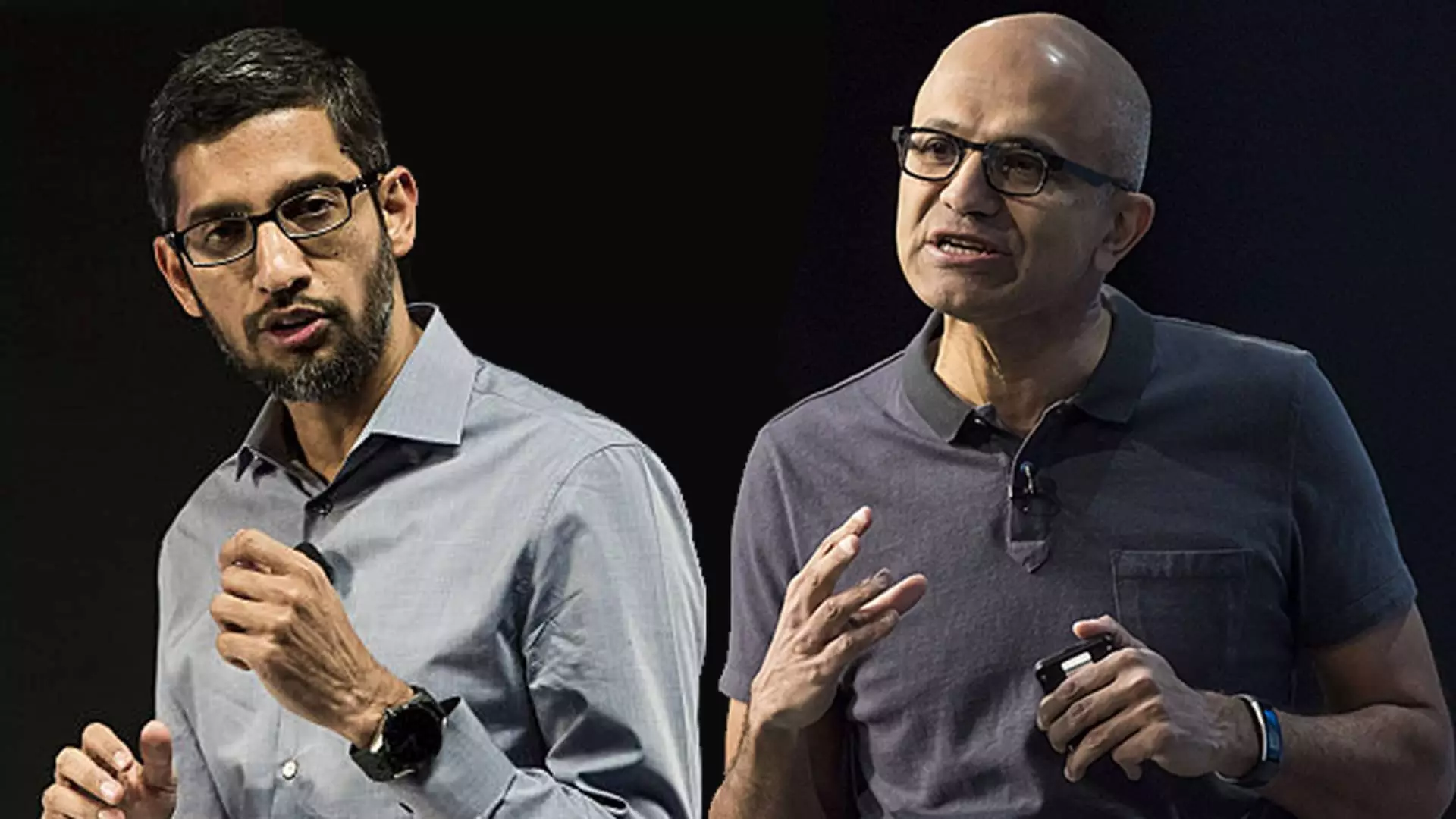In an ever-evolving tech landscape, the rivalry between Microsoft and Google has intensified, reaching new heights with recent accusations made by Microsoft against Google. The stakes are high as both companies vie for dominance in the cloud infrastructure market while grappling with regulatory pressures in Europe and the United States. Microsoft’s legal representative, Rima Alaily, took to the public sphere to assert that Google is orchestrating “shadow campaigns” aimed at undermining Microsoft’s reputation with regulators. By employing what Microsoft describes as an “astroturf” strategy, Google is accused of covertly hiring firms to create a façade of support among European cloud companies.
Alaily argues that these actions represent a deep-seated inclination from Google to manipulate public perception and steer regulatory scrutiny in its favor. This revelation sheds light on the undercurrents of competition that not only affect market dynamics but also highlight the ethical dilemmas in corporate strategies. The use of third-party firms to project a false narrative of support is not only a clever tactic but one that raises significant questions about transparency and accountability in a cutthroat industry.
The allegations of Google establishing the Open Cloud Coalition, aided by the DGA Group, unveil a troubling pattern in corporate behavior. This coalition aims to advocate for an “open and competitive cloud services industry,” which, according to Microsoft, serves to intentionally mislead stakeholders about Microsoft’s practices. Such tactics emphasize how corporations can attempt to mold the narrative surrounding their competitors while masking their actual motivations.
With public discourse so heavily influenced by perception, this alleged coalition acts as a double-edged sword—it can rally support while simultaneously eroding trust in rivals, positioning Google to maintain its grip on the market. It raises critical concerns about the limits of competition and the lengths that established companies will go to retain their dominance. Furthermore, it highlights the ethical implications of using proxies to wage corporate warfare, raising questions about the moral landscape within which these tech giants operate.
As both companies navigate the complexities of regulatory landscapes, Google’s legal maneuvers—including a complaint against Microsoft to the European Commission—signal that the stakes are even higher. Google accuses Microsoft of engaging in anticompetitive licensing practices that ostensibly lock customers into its ecosystem while stifling innovation. This ongoing back-and-forth illustrates how regulatory bodies play a pivotal role in shaping market dynamics, with both companies keenly aware that public perception, alongside legal scrutiny, can significantly impact their business strategies.
Alaily’s claims that Google has previously funded initiatives aimed at tarnishing Microsoft’s image reinforce the notion that the battle for cloud supremacy is as much about public relations as it is about technological advancement. It underscores the reality that competition is not confined to product development or marketing but extends deeply into the realm of policy influence.
The implications of these conflicts extend beyond Microsoft and Google. A healthy competitive environment is essential for fostering innovation, and practices that stifle genuine competition can lead to stagnation in technological advancements. Cybersecurity, choice, and innovation are all at risk in an environment where established players resort to shady tactics to maintain their foothold in the market.
While both companies have presented their cases, the ongoing allegations and counter-allegations detract from their core missions of innovation and customer service. As they grapple with each other in this digital battleground, the ultimate victors—or casualties—may be the consumers who rely on these cloud services for their digital needs.
The unfolding narrative between Microsoft and Google serves as a cautionary tale for the tech industry at large. The tactics employed in their power struggle illuminate the complexities inherent in competition within rapidly evolving sectors. This clash underlines the necessity for transparency and integrity in corporate dealings, as businesses must also be held accountable for the ethical consequences of their strategic maneuvers. As regulators keep a close eye on these developments, the resolution of this rivalry will shape not only the futures of Microsoft and Google but potentially the landscape of the tech industry as a whole.

Leave a Reply